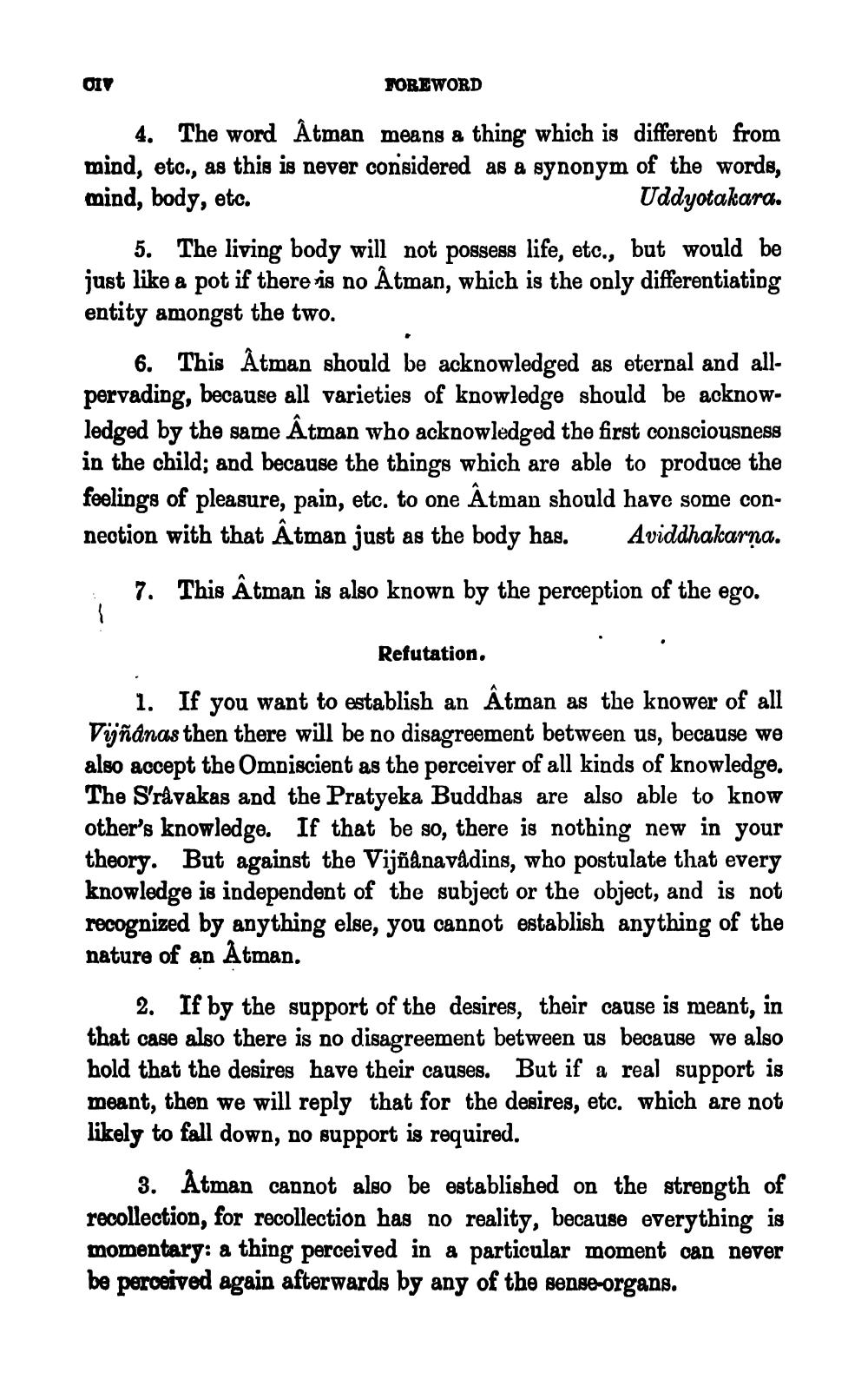________________
OIV
FOREWORD
4. The word Âtman means a thing which is different from mind, etc., as this is never considered as a synonym of the words, mind, body, etc.
Uddyotakara. 5. The living body will not possess life, etc., but would be just like a pot if there is no Atman, which is the only differentiating entity amongst the two.
6. This Åtman should be acknowledged as eternal and allpervading, because all varieties of knowledge should be acknowledged by the same Âtman who acknowledged the first consciousness in the child; and because the things which are able to produce the feelings of pleasure, pain, etc. to one Âtman should have some conneotion with that Âtman just as the body has. Aviddhakarņa. : 7. This Âtman is also known by the perception of the ego.
Refutation.
1. If you want to establish an Âtman as the knower of all Vijñānas then there will be no disagreement between us, because we also accept the Omniscient as the perceiver of all kinds of knowledge. The S'råvakas and the Pratyeka Buddhas are also able to know other's knowledge. If that be so, there is nothing new in your theory. But against the Vijñanavadins, who postulate that every knowledge is independent of the subject or the object, and is not recognized by anything else, you cannot establish anything of the nature of an Atman.
2. If by the support of the desires, their cause is meant, in that case also there is no disagreement between us because we also hold that the desires have their causes. But if a real support is meant, then we will reply that for the desires, etc. which are not likely to fall down, no support is required.
3. Åtman cannot also be established on the strength of recollection, for recollection has no reality, because everything is momentary: a thing perceived in a particular moment can never be perceived again afterwards by any of the sense-organs.




